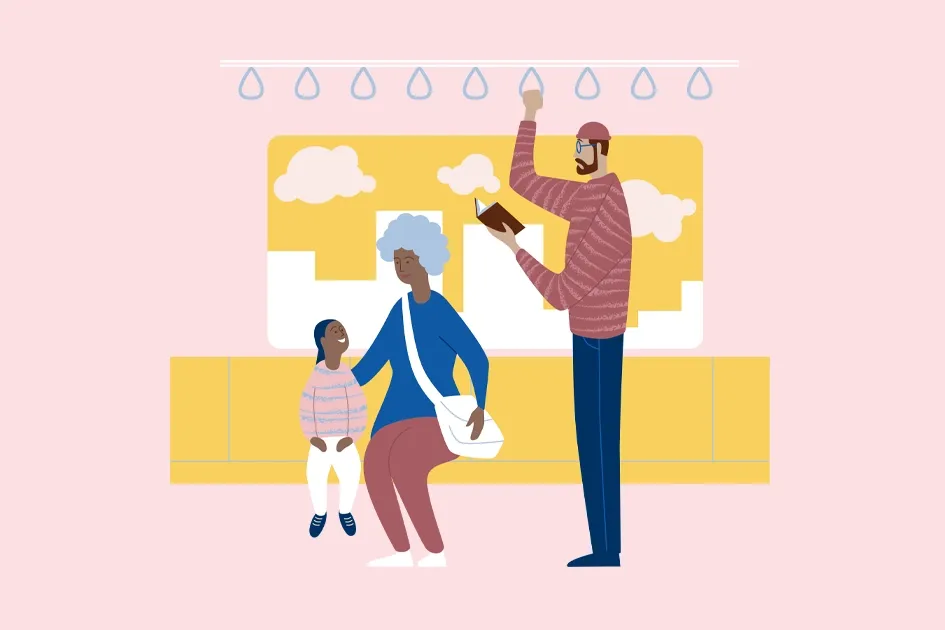When my friend realized it was time to break up with her boyfriend, she didn’t intend for her decision to drag on for a month. It started with a moment of heartbreaking clarity—and the next day a confrontation. But the following week she was tortured with doubt and pled for more time to think. The weeks after that were filled with overanalyzing, waffling, discussing, and then one final conversation.
I had put myself on standby, ready to be her sounding board, but instead she kept apologizing for the mess. My friend was embarrassed that the breakup had been drawn out. She had expressed every known emotion in a matter of weeks, and all she had to show for it was an unsure, barely committed decision. 
I believe she handled it as best she could, but I do understand the shame of being unsure, feeling guilty for not knowing yourself better or hearing the Spirit more clearly. Somewhere along the line, many of us learn that our uncertainty is an indicator of weak faith, and Jesus’ words “you of little faith” haunt rather than encourage us (Matt. 8:26 NIV). We look at people like Gideon: The Lord appointed him to save Israel from the Midianites, and he asked God to confirm this calling three times. (See Judg. 6:1-40.) If he’d had greater faith, he would have obeyed God’s call from the beginning, right? And yet the Lord participated in Gideon’s tests: His fire consumed the meat and unleavened bread. He soaked the fleece on dry land, and He dried the fleece on soaked land. If Gideon’s “weak faith” is a cautionary tale, why didn’t God respond to him with fury, or even apathy? Why not respond like the angel Gabriel, who made Zechariah mute for not believing his words (Luke 1:18-20)?
But the Lord who visited Gideon is the same Lord who agonized over death in Gethsemane. Dr. Stanley reminds us in his book Emotions:
Scripture tells us that [Jesus] prayed not once, nor twice—but He sought the Father three times during that terrible hour. If the perfect, sinless Son of the Living God—God Himself—went repeatedly to the throne of grace for comfort as He faced such devastating emotions, what does that say to us? Not only are those feelings a reality to all of us, but we can and should go often to the Father’s arms for compassion, mercy, and consolation.
“If the perfect, sinless Son of the Living God—God Himself—went repeatedly to the throne of grace for comfort as He faced such devastating emotions, what does that say to us?”
If Jesus could wrestle through God’s plans for His life and death, why couldn’t Gideon? Why must we make a judgment on the quality of faith when we read about Gideon’s process—or my friend’s, for that matter?
When I picture God playing Gideon’s games of dewy and dry fleece, I see the gentle kindness of a Father who’s both intimately familiar with what it means to be an insecure human and acquainted with every circumstance that leads to our doubt. While we might be more inclined to judge, God is inclined to show mercy. Not only does He let us push up against His Word to see it stand, but He is also present and patient as we do so.
It should come as no surprise, then, how Jesus receives “doubting Thomas.” Not yet having seen the resurrected Savior, Thomas declares, “Unless I see in His hands the imprint of the nails, and put my finger into the place of the nails, and put my hand into His side, I will not believe” (John 20:25). We’ve assigned him a reputation like Gideon’s, but it’s hard for me to fault a man for being skeptical of a resurrection.
And I wonder if Jesus is thinking that, too, looking at Thomas. In this moment, the Lord has fully experienced what it means to be human and can understand not only the unbelievability of His risen self but also the limits of man’s knowledge. Maybe Jesus was even remembering His own pleas in the garden of Gethsemane and that visceral need for His Father’s confirmation. So He invites Thomas to do the very thing he asked: “Place your finger here, and see My hands; and take your hand and put it into My side; and do not continue in disbelief, but be a believer” (John 20:27). It is a compassionate God who sees insecurity and addresses it head-on.
God is neither surprised nor offended by questions from an earnest heart.
I want to tell my friend there is a difference between testing God because we’re scared and want to be sure, and doing so because we don’t believe who He says He is. The Lord knows which side of that fine line we’re speaking from every time we push for clarity, confirmation, and assurance. When the path forward makes no sense to us, He remembers that His ways are higher than ours—He is neither surprised nor offended by questions from an earnest heart. What’s more, He may even be pleased when we bring Him our uncertainties, leaving the honor of resolution and comfort to Him alone.
After being invited to touch the Savior’s wounds, Thomas proclaimed, “My Lord and my God!” and Jesus said, “Because you have seen Me, have you now believed? Blessed are they who did not see, and yet believed” (John 20:28-29). Until now, I’ve always read within this response the opposite implication: that because Thomas believed after seeing, he was not blessed. But Jesus didn’t say that at all. In fact, Thomas received a great blessing that day—the perfect comfort and security from His Creator who knew his spirit better than anyone. We’ve been promised the same—that all who come to Jesus confused and unsure will find assurance in Him.


